Members
Chair | Craig Findlay, Assoc. AIA | DLR Group
Co-Chair | Tiffany Schweer, Assoc. AIA | ArCuretecture
Kevin Baitey, AIA | Carlson West Povondra Architects
Elise Benson, AIAS | University of Nebraska-Lincoln
Angel Slater-Coleman, Assoc. AIA | University of Nebraska-Lincoln
Jordan Morris, Assoc. AIA | Holland Basham Architects
Niccolo Peterson, Assoc. AIA | Emergent Architecture
NCARB Advisor | Scott Shiffermiller, AIA | DLR Group |
Joseph Synek, AIA | Wilkins Architecture Design Planning
Julia Tabaczyk, Assoc. AIA | DLR Group
Call for Interest: AIA NE Emerging Professionals ARE Success Teams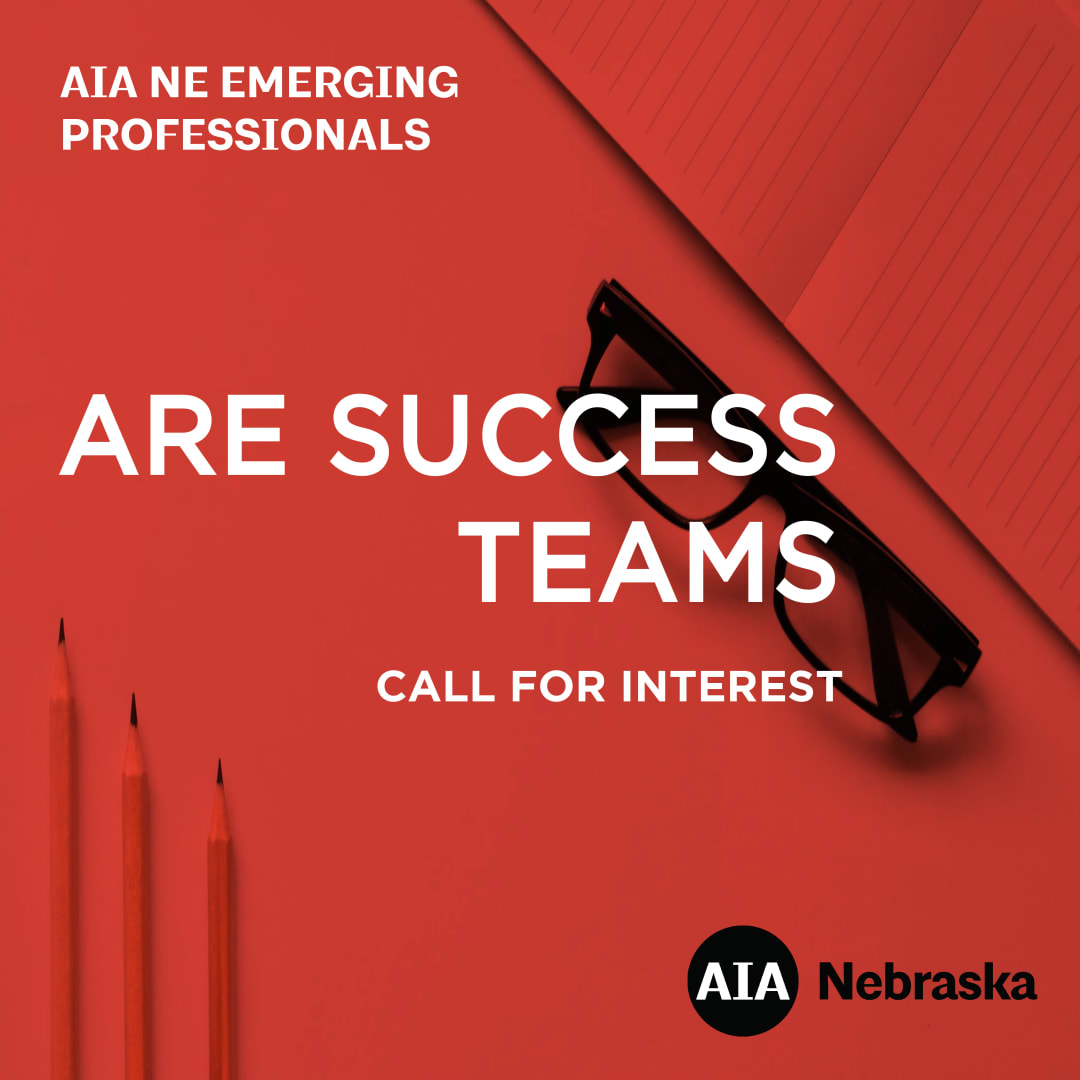
The ARE Success Teams is a study program intended to provide structure and support for ARE candidates through the coordination of small groups and collaborative learning.
During the program AIA Nebraska will provide NCARB recommended study materials, mentorship, and coordination to ensure each team has the tools necessary to pass all divisions of the ARE over the course of one year.
Success Teams will meet at regular intervals to go over study materials, study tips, exam experience, and to provide support until every member has passed all exam divisions. Fill out the survey below to indicate your interest.
Click Here for the survey >
ARE Starting Point Guide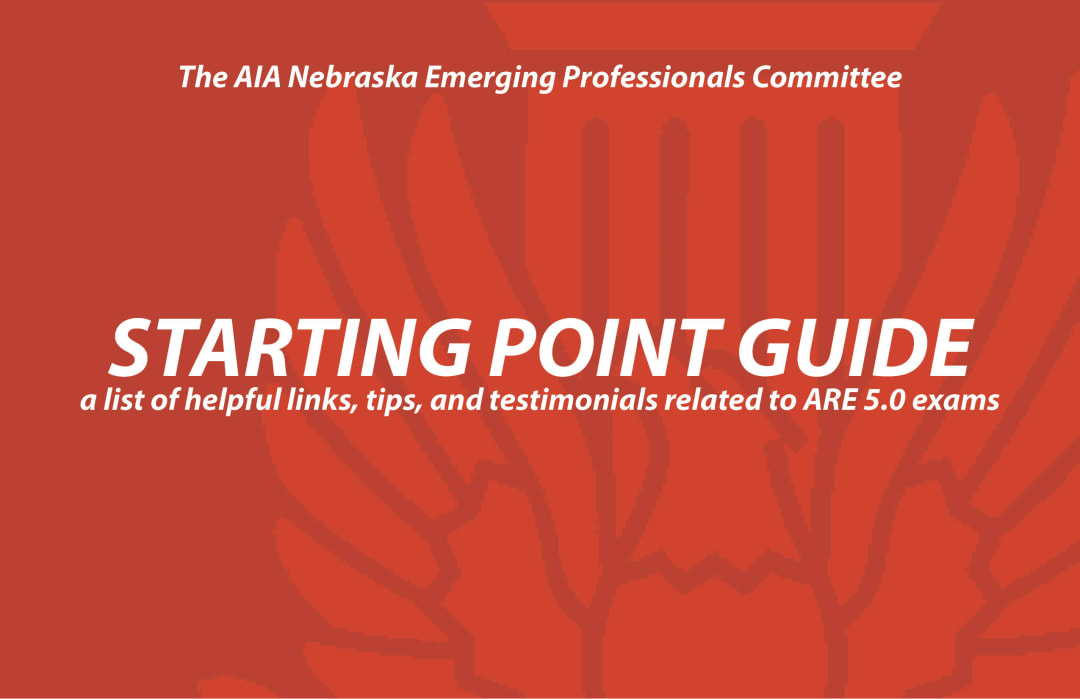
Hello Nebraska emerging professionals pursuing architectural licensure.
It is AIA Nebraska Emerging Professionals Committee’s pleasure to bring you the STARTING POINT GUIDE: a list of helpful links, tips, and testimonials related to ARE 5.0 exams. The committee hopes this guide will assist Nebraska architecture students, AIA Associate members, and any emerging professional who is pursuing an architectural license in the state of Nebraska with a step-by-step guide on how to apply for, study for, and take the NCARB ARE 5.0 exams.
The guide will be updated during the months of February and August of each year.
If you are interested in any study groups, trivia nights, additional resources provided in your area, providing an ARE 5.0 testimonial, or if you’re interested in becoming more involved with AIA Nebraska’s Emerging Professionals Committee, please reach out to AIA Nebraska’s executive director, Sara Kay, at sara@aiane.org. In addition, the AIA Nebraska Architect Licensing Advisor is another resource and available to answer questions, Scott Shiffermiller, AIA, sshiffermiller@dlrgroup.com, 402.429.6133.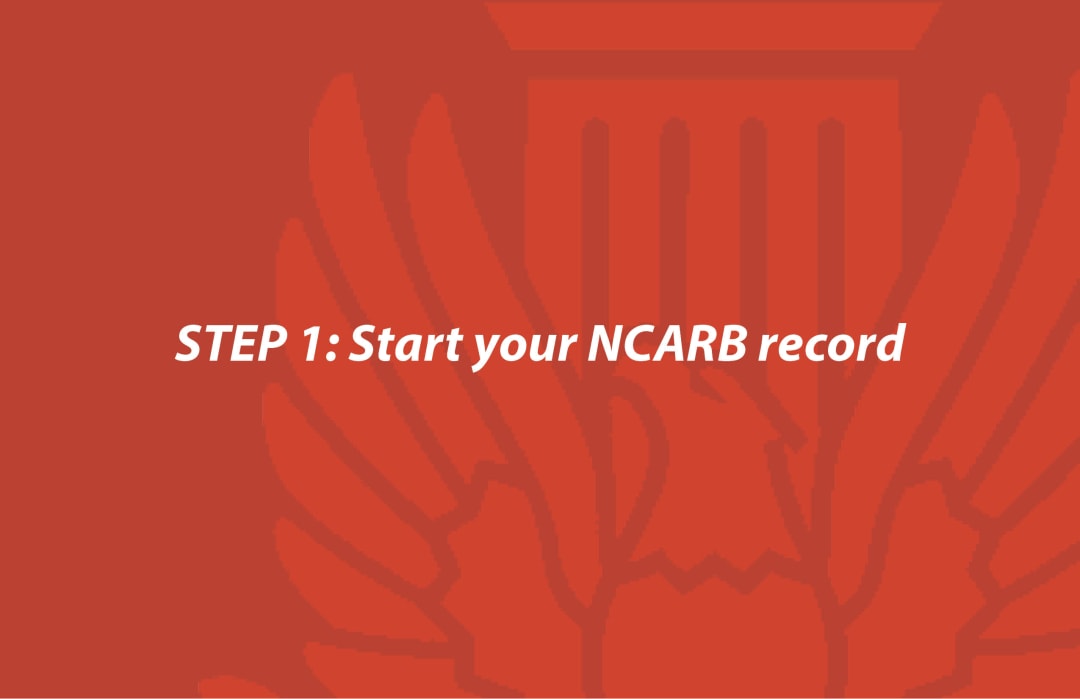
Step 1: Start your NCARB Record
Start the AXP
AIA AXP Resources
Tip: Check with your employer to see if they cover the costs of holding a NCARB record.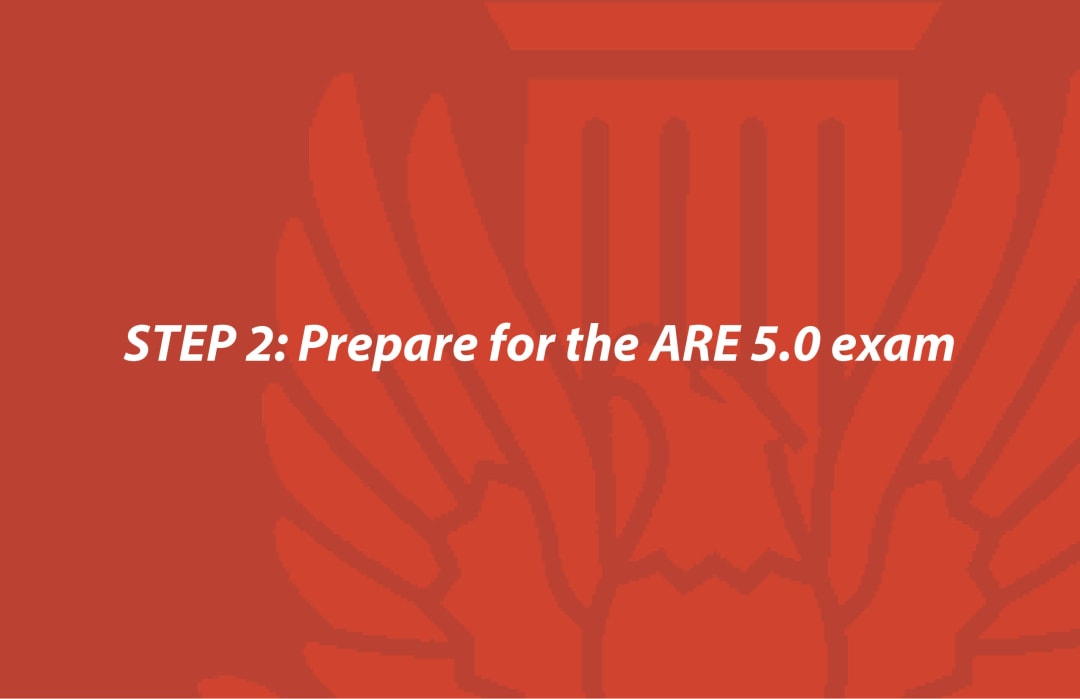
Step 2: Prepare for the ARE
Download and complete the Application for Examination: Architect Registration Examination form.
State of Nebraska Board of Engineers and Architects – ARE Application Process
NCARB – Start ARE 5.0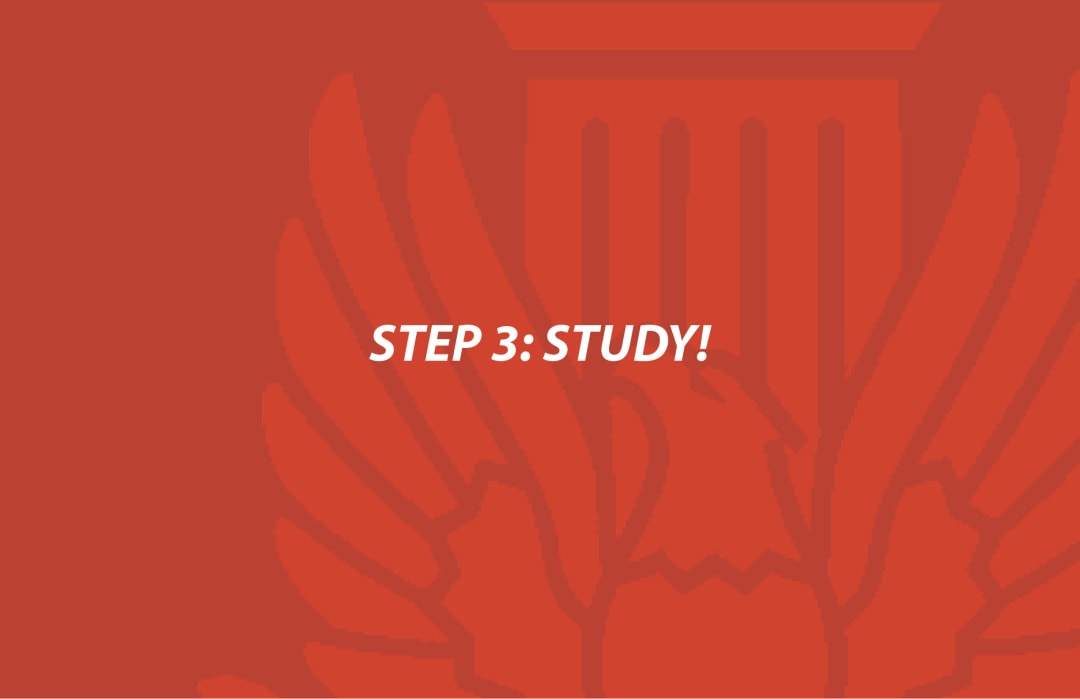
Step 3: STUDY!
NCARB-Recommended Study Materials, AIA Nebraska EP Committee Favorites
(For full list of references, visit the NCARB ARE 5.0 Handbook)
2010 ADA Standards for Accessible Design
International Building Code (2015)
2018 Code of Ethics and Professional Conduct, AIA Office of General Counsel, The American Institute of Architects.
AIA Contracts
The Architect’s Studio Companion: Rules of Thumb For Preliminary Design by Edward Allen and Joseph Iano
Site Planning and Design Handbook by Thomas H. Russ
Law for Architects: What You Need to Know by Robert F. Herrmann, Available for purchase here.
Architect’s Handbook of Professional Practice, 15th Ed. by The American Institute of Architects, Available for purchase here.
Building Construction Illustrated, 5th Ed. by Francis D.K. Ching, Available for purchase here.
Mechanical and Electrical Equipment for Buildings by Walter T. Grondziik and Alison G. Kwok, Available for purchase here.
Third Party Materials:
ArchiPrep
Black Spectacles: Architecture Courses, Tutorials & Exam Prep
ARE 5.0 Complete Exam Bundle by David Kent Ballast, Available for purchase here.
Gang Chen ARE Mock Exams, Review with links to purchase here.
www.designerhacks.com (Online Practice Exams $39/Category or $195/All 6)
www.youngarchitect.com (Resource for study, general overview, YouTube videos)
Young Architect ARE Bootcamp 5.0
www.architectexamprep.com (pdf and mp3 files)
www.pluralsight.com (Video Courses)
Check with your employer and AIA Nebraska to see if they already provide some of these resources.
Apply for the Jason Pettigrew Memorial ARE scholarship offered by the Architect’s Foundation to cover the costs Archiprep and other ARE testing materials. www.architectsfoundation.org/what-we-do/architecture-scholarships/jason-pettigrew-scholarship/
Check with AIA Nebraska to see if they offer scholarships that cover the cost of Archiprep subscriptions.
Additional Resources:
NCARBARE 5.0 Guidelines
NCARB ARE 5.0 Handbook
NCARB’s Facebook post for ARE 5.0 Tips
Designerhacks Comprehensive List of ARE 5.0 Study Materials
Blog: ARE we there yet? By Candy Chan: Visualizing the ARE
The Life of an Architecture Project Infographic, Young Architect
Tip: Some practice questions from the ARE 4.0 are also applicable to the ARE 5.0 exams.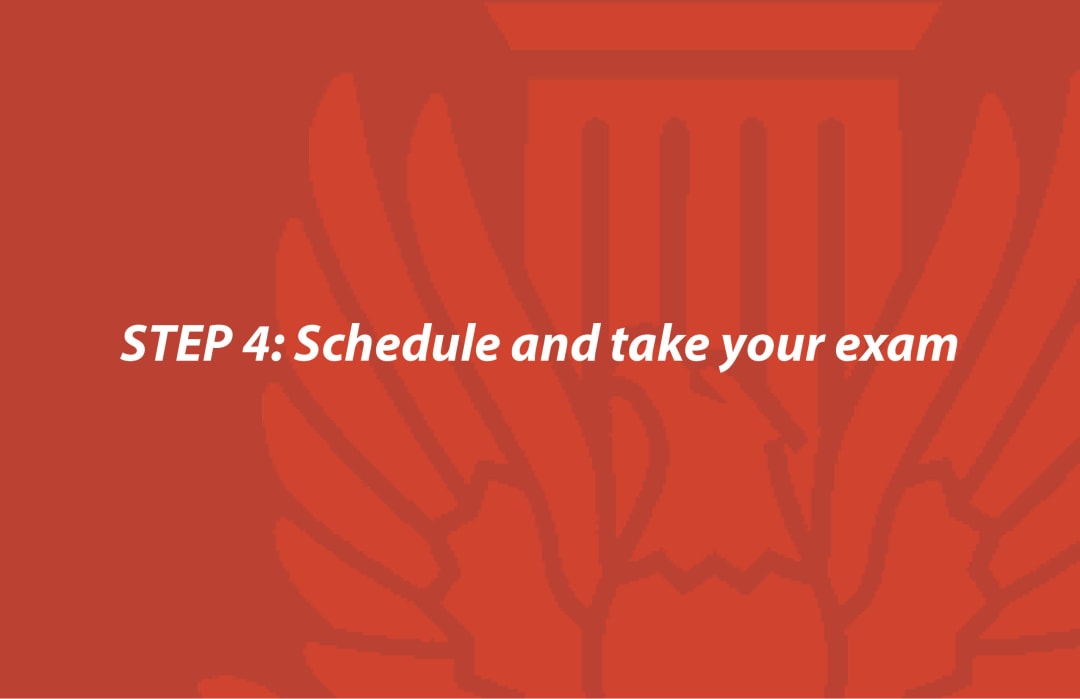
Step 4: Schedule and Take your Exam
Schedule an appointment with NCARB to sit for your exam.
Scheduling an exam requires that you purchase a seat. Check with your employer to see what their policies are related to taking time off for exams and paying for exams.
Apply for the Jason Pettigrew Memorial ARE scholarship offered by the Architect’s Foundation to cover the costs of exams. www.architectsfoundation.org/what-we-do/architecture-scholarships/jason-pettigrew-scholarship/
Tip: Make a calendar of events prior to scheduling your exam that includes study dates, objectives related to studying, and include that with your personal calendar and work calendar. This can help you gage the best time for you to take your exam.
Testing Tips:
Make sure your ID/Drivers license is current and matches the name on your exam appointment and NCARB account.
Read the test center’s requirements/ restrictions on what you can bring with you.
Plan for when you might take your 15 minute break. The break is not required but doesn’t count against your time during the exam.
If you are going to take the exam during the work day, it might be nice to take the entire day off.
With the ARE 5.0, you have the ability to see if you most-likely passed or most-likely failed the exam right after you complete the exam. NCARB normally provides the final results of your exam within the following 2-5 days after your exam.
Step 5: Pass the Nebraska Exam and Apply for Licensure
State of Nebraska Board of Engineers & Architects: Architect-Initial Licensure
Upon completion of the exam, the applicant will be sent further instructions for completing the architect license process after she/he has passed all sections of the ARE. This includes passing a short exam on the Engineers and Architects Regulation Act and the Board’s Rules and Regulations.
Check with your employer to see if they cover the costs of licensure.
Download and complete the Application for Licensure of an Architect form.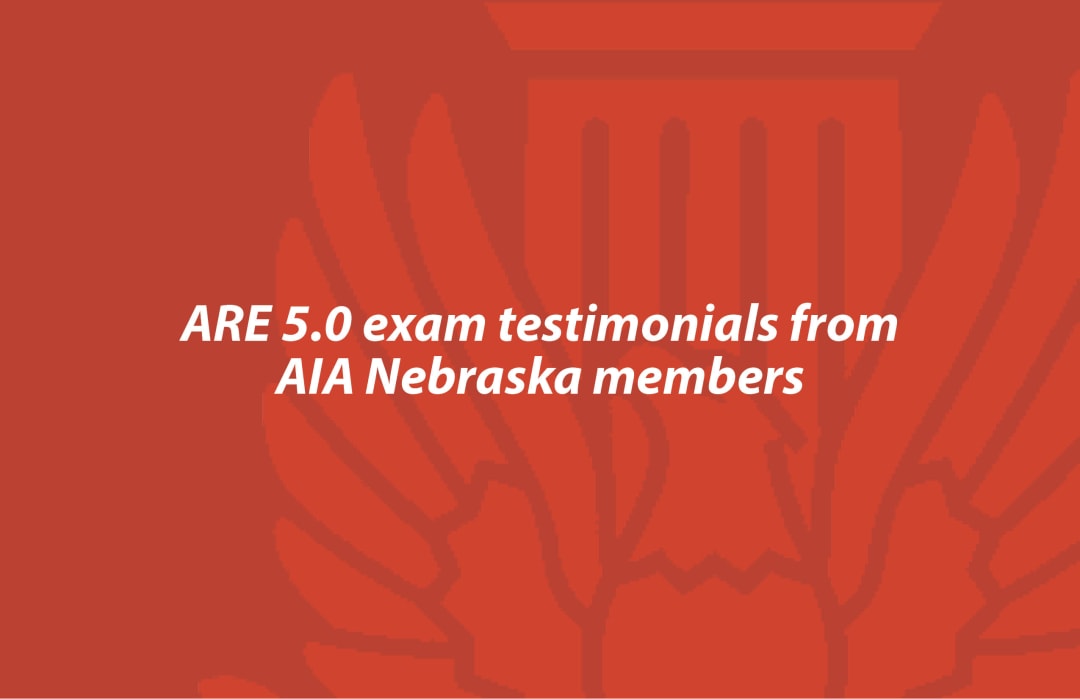
Testimonials
Emily’s Testimonial:
I’ve been testing since Fall of 2017. The application process to be approved to take the ARE took about two months, and then it was study time! My first test, the Programming and Analysis exam, was about 5 months after ARE 5.0 test had rolled out. The Ballast materials were new for the new exam, so not many people could comment on how helpful that material actually was. There weren’t too many practice tests in Black Spectacles for me to use when I started, either. For the record, this has changed and now (2020) there are a bunch of practice exams that have proven to be successful study materials.
I lightly studied for my first test and failed. I say “lightly”, because I was also working full time and planning my wedding, so my evenings were mostly devoted to that instead of studying. I didn’t have a study plan or a plan for how to approach for my first time taking the test, either. I’ve also never been the greatest at test taking. Even if I understand the material, I do a lot of second-guessing when choosing the best answer, and I struggle to find the real meaning of the question.
After a couple of other unsuccessful attempts and rearranging my exam order, I went back to the Programming and Analysis exam. This time, I had made a calendar that included my non-ARE study activities, but also the nights that should be devoted to studying. I focused on reading the question to “pick apart the true meaning” and did LOTS of practice exams using Black Spectacles and Ballast. I PASSED!
That passing experience had motivated me to make similar calendars and analyze the questions. I will take my next exams, PPD and PDD, next week.
I think I benefitted the most from developing a strict study plan and reading the questions in a way that gave me confidence in my answer. It was also beneficial to actually experience some of the test questions in my daily practice. I’d say that every year of practice has actually helped me feel more confident in my answers. Everyone has a different way of learning, and it’s okay if it takes you a few tests to find out what works for you. Don’t give up!
—
Caitlin’s Testimonial:
I’ve been licensed a little over a year now! I started applying to take the exams in November of 2017. I took my first test in March of 2018 and passed my last test in December of 2018, and I officially became licensed in January of 2019. The order that I took my tests was PcM, PjM, CE, PA, PPD, and PDD, which I would recommend. Regardless of order, I would definitely suggest bundling PcM, PjM, and CE together, since there is quite a bit of overlap between these tests. PA, PPD, and PDD also have some overlapping information, so these are good to bundle together as well. My goal was to complete all of the exams within the year, so I set a pretty strict testing schedule for myself in order to accomplish that. I gave myself about 4-5 weeks to study for each of the smaller tests (PcM, PjM, CE, and PA), and around 6-8 weeks for the larger two tests (PPD and PDD) since they had so much more material to review. I think that scheduling the exams relatively close together helped me to retain a lot of the information that I was learning from one test to the next. I would, however, recommend taking at least a week off after passing an exam before starting to study for the next one. That really helped me to destress and regroup before jumping into the material for the next test.
I used Ballast almost exclusively for study material along with some supplementary resources, and would spend the first couple of weeks of studying by reading through the material for the test. At around two weeks before the exam I would go through all of the Ballast Practice Problems, then at 1 week before the test, I would take the Ballast Practice Exam. I would use that last week to read through the answers to the practice exam and study/reread any information that I felt I needed to brush up on before the test. I would also use this last week to go over flash cards as a last minute study tool. One thing I would recommend is to read through all of the answer keys to the Practice Problems and Practice Tests (even the ones you answered correctly) so that you can really understand how the information is applied.
It was a little challenging to get back into the studying and test-taking mindset, but I’m glad that I was able to take the tests relatively soon after graduating (I think the longer you wait, the harder it can be), and that I was able to complete my test-taking experience within a few months. Not everyone’s ARE journey is the same, though, and a slower or faster pace might work better for others. Experiment with different study strategies to figure out what works best for you!
—
Jonathan’s Testimonial:
I finished all seven AREs (version 4.0) within six months. That required a serious study commitment that was often hard to hold myself to. The best motivation I found was to schedule at least two tests at a time. I came out of the first test feeling awful; I was sure I’d failed. Dragging myself back to studying for the next exam after that experience was excruciating. But I had to keep studying because I’d already scheduled my next exam, and didn’t want to forfeit the registration fee. As I kept taking and scheduling tests, I found that always having the next test to immediately prepare for helped clear my head and keep me focused. I established a rhythm between studying and testing that became automatic and made staying focused the default.
I found practice tests and questions to be most helpful in my studying. I used resources that would present a chapter of information, followed by test questions at the end. I also set up several mock exams in which I’d simulate the testing environment. I would go through a practice test in the actual allotted test time with no music, no drinks or snacks, and no distractions. It can be hard to maintain focus for two hours or more, so practicing in a realistic environment helped me build stamina for the real exams. After taking the practice exams, I’d look for broad areas in which I was consistently getting questions wrong, then go back and study those areas. This gave me immediate feedback on which areas of understanding I needed to strengthen and gave direction to my study efforts.
__
Melody’s testimonial:
I graduated in 2015, but it took me a while to totally understand what NCARB, AIA, NE board of engineers, and … is and what I need to do and what steps to take to become a licensed architect. At the time, I was the only intern in my firm, and most of my colleagues were licensed many years before me. My application for testing was approved in late 2018, and I started testing with Project Management, I passed on my first try. A few months later passed Practice management. After that, I tried Construction and Evaluation twice, but I was not successful, which made me lose my motivation, and I struggled to get back to studying for a while. After a few months, I forced myself to get back to it. I was going to retake CE this March; my appointment got canceled due to COVID 19, I already have rescheduled twice, with NCARB and Prometric Center canceling my appointments every time. I am scheduled to take the CE in September now.
For me, the studying process for each test starts with NCARB forum, reading several posts to see what sources others have reviewed that helped them pass, then I will create a list of critical topics and most important study materials. I will first watch Black Spectacle videos to get a general idea of what topics I need to cover in my studies. I will take notes during those lectures. After the videos, I will study the materials (I have listed from NCARB forum) based on their importance. Taking notes and creating flashcards is a must for me in all the steps. I will take 4 sample tests, once a week on the weekends, but not necessarily in one sitting. I find it more A couple of days before the test date; I will take the last sample test in one sitting, similar to the testing center environment, just to get myself ready for the test day. This has worked for the first two tests; I think I have to incorporate more sample questions into my studying routine as I move to PA, PPD, and PDD.
I think a strict study plan that forces you to continuously review the materials (as little as 1 hour a day) is the key to success with these tests.
Good Luck everyone 🙂
